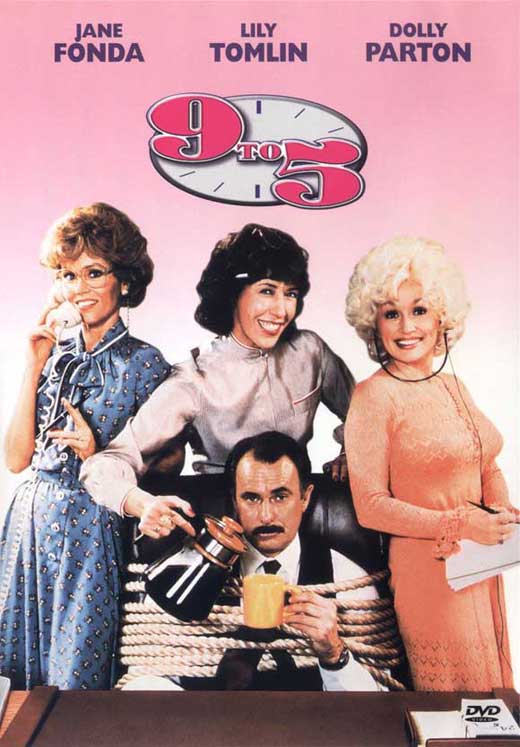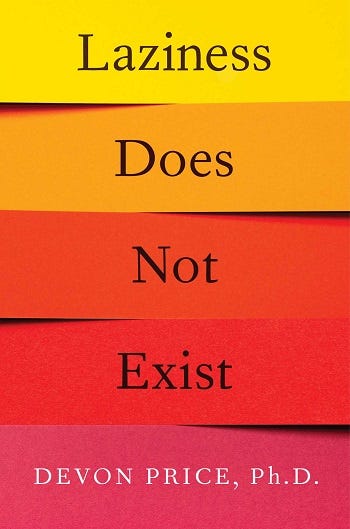Note from Doreen: My good friend Luke has kindly offered to post their thoughts on theology and the anti-work philosophy I’ve been writing about for years now. I’m happy to post their well-crafted ideas here, but this should not be taken as a full endorsement of their beliefs. For example, I am not a Lutheran, much less a theist. Yet, this site has had a big gap in its comments on the ties between theology and anti-work philosophy except to criticize the Puritan Work Ethic. My hope is that this great essay by Luke will help fill in that gap, if only just a little. Thanks for reading!

Because of COVID-19, we have seen that workplaces are finally offering better wages and benefits to their employers so as to help open them back up as the Feds, States, localities, and businesses move forward. One benefit that hasn’t been considered is an anti-work job environment. To discuss the arguments for, and the benefits of, an anti-work outlook from a Leftist Lutheran perspective, we shall see what has hitherto been the case for the Protestant Work Ethic. Then, we shall then see Leftist Lutheran arguments in favor of the Leisure and Work Ethics and why this fits with the communal economics implicitly prescribed, and explicitly described, of the Christian Church in Scripture. Lastly, we shall see how exercising the Leisure and Work Ethics in the current climate will affect the climate moving forward.
First, let us first address the commonly called the Protestant Work Ethic, also popularly known as the Puritan Ethic. I would more appropriately name this the Calvinist Work Ethic, for it is popular among the various Christian Reformed (Calvinist) Churches. The basic idea proposed by Calvin is this: We are all predestined in this life and in the afterlife to be certain places and to do certain things. Since this is the case, we really have no control over the scheme of things, including whether or not we happen to be saved – the Lord has determined from the beginning of time who specifically wind up in either Heaven or Hell in the afterlife. Therefore, no faith is truly our own, but rather a symbol from the Lord himself that we are saved. If a person loses their faith, their faith was never true from the beginning; this means they were determined from the beginning to go to Hell.[i]
Within the span of a few generations, many – not all, but many – Calvinist theologians proposed that faith + earthly blessings = heavenly blessings. This was never proposed by Calvin himself; even still, it was proposed by a large swath of Calvinist theologians and remains a part of many Calvinist churches to this day. This proposal caused Calvinist lay folks to work hard, because that seemed the only “earthly” conclusion to gain earthly blessings. Out of this we get the sayings “A penny saved is a penny earned” and “Idle hands are the Devil’s Playground.” To a Calvinist, if the Lord ordained me with faith, He also ordained me with a hard work ethic to gain earthly blessings to show the world through my hard work ethic and through my earthly blessings that I am saved. He also blessed me with a generous heart to share with others my blessings while still retaining my blessed status.[ii] This work ethic is harmful in the long run for one’s physical, mental, and spiritual health.[iii] This particular strain of Calvinist theology is the source of viewing the poor as inferior, and implicitly bound for Hell. We see this theology as the root of the Prosperity Gospel theology, which drives mainline evangelicals now, which is the most common type of American out there.
In comes Lutheranism, at the same time as Calvin, saying that salvation comes from faith alone, regardless of one’s earthly blessings or good works. Humans can passively accept faith from the Holy Spirit (G-d the Mother), or actively reject it. This determines our salvation. While good works are not necessary for salvation, if we have a true faith, then good works will blossom. We’ll still sin at times, just as a good tree may produce bad fruit at times; however, just as we determine a tree to be good because the majority of its fruit is good, we determine Christians to be Christians with true faith because the majority of their acts towards their neighbor is good. Martin Luther (1483-1547) is quoted to have said, G-d doesn’t need your good works, but you neighbor does.[iv]
An example of such a good work is an employer providing mercy to their workers through leisure. In the words of Luther, who wrote to Phillip Melancthon in order that the former would advise latter against too much work: G-d is also served through leisure and through nothing more than leisure. For this reason, it is His will that the Sabbath is kept above other days. Do not forget that! It is the Word of God that I am writing you.[v] While Luther specifically mentioned the Sabbath, he was by no means otherwise advocating for continuous hard work from dawn until dusk every day until the Sabbath. He saw a need for leisure every day, not just the Sabbath.
Thus, we see the difference between Calvinism and Lutheranism immediately: Lutheranism leaves more time for leisure than Calvinism. In Calvinism, we see that constant work produces more earthly blessings in the form of wealth, which is symbolic of more heavenly blessings. In Lutheranism, we see that work balanced out with leisure is best for one’s spiritual, physical, and mental health – even when one’s work, as was the case with Melancthon, is for the Lord! Since work measured out by appropriate leisure is supported by Best Practice science[vi], Luther gets it right and Calvinist theologians get it wrong.
Let us not forget to provide meaningful labor. To quote Luther, The maid who sweeps her kitchen is doing the will of G-d just as much as the monk who prays – not because she may sing a Christian hymn as she sweeps but [rather] because G-d loves clean floors. The Christian shoemaker does his Christian duty not by putting little crosses on the shoes, but by making good shoes, because G-d is interested in good craftsmanship.[vii] In short, to quote Hugh Whelchel in How Then Should We Work: According to Luther, We respond to the call to love our neighbor by fulfilling the duties associated with our everyday work.[viii]
With that said, to define productive work strictly is impossible. Productive work looks different in each line of work. Productive work at the vehicular assembly plant looks different from productive work at a health insurance company, which looks different from productive work at a coffee shop. For what can be properly said of work, productive work can be best defined as labor to provide a quality product or service within reasonable time constraints for that specific individual and staff and with time allotted for appropriate, quality, and timely leisure for maximized production. For each circumstance, this looks different, but the basics are all the same. So, if leisure or work is maximized to such an extent that production is minimized, then the employees can find a balance that allows for all that. It must also be considered that Christ told his disciples: Be merciful, just as your Father is merciful[ix]. Since appropriate leisure is necessary at work to optimize functionality[x], and since overwork is unmerciful, the merciful act of scientific Best Practice in this case would be to provide appropriate leisure, which well then serve to optimize performance.
This Leisure and Work Ethics argued by Leftist Lutheranism is summarily consisted in the preceding two paragraphs, and can have this motto: Quality Work for the Love of Others, Quality Leisure for the Love of Self. Thus, all leisure and no willingness for production is immoral; as well, all work and no leisure is immoral. An allegorical example of this is the Creation Story.[xi] In this story, the Lord rests on the seventh day and thus establishes the Sabbath, a day dedicated to rest and holiness; as well, He also takes rests during each day of creation. We are not given the specifics of how He rests versus producing Creation, so there’s no set schedule for leisure and work; this lack of specifics accepts that the application of the Leisure and Work Ethics is different for each individual and in each setting, but is still a necessary ethic to have. In short, if the Lord regularly rested during Creation in said story, then that indicates we need rest, too, for similar reasoning is used in establishing the Sabbath[xii]. Thus, included in good works is allowing your employee to have proper leisure during a shift. The fact that this is also backed by Best Practice science[xiii] indicates that the Lord intended us to rest.
Because of how the Leisure and Work Ethics operates, while suited for secular societies[xiv], it is also well suited for Christian libertarian left societies. Acts 2:42-47[xv], paraphrased, reads that the Early Church was formed as a communal society, where their slogan could be from each individual according to their ability, capability, and capacity, and to each individual according to their needs for holistic well-being of the gestalt of said individual. With this slogan, we can see that while the Early Christians held true, generally, that those who are unwilling to work don’t eat[xvi], it also held true that working at ability, capability, and capacity recognizes that each individual is different when it comes to productive work. Also, because these verses base the standard on willingness, this addresses those who, out of any control over their own, cannot produce as much as they want – or none at all, though they want to do so. It does so by implying that lack of opportunity despite willingness is not immoral. It does so by also implying that productivity of one over the other makes one superior not. This implication is because no verse says “he who doesn’t work” or “he who doesn’t work enough,” but instead simply says “he who is unwilling to work”.
In other words, Scripture protects those who have no opportunity for work, but are willing to work, by having their needs met from the community. As well, productive work is different for each individual, but at no point does Scripture say to deny anyone their needs, but rather protects them. Production is not the standard in Scripture, but willingness. This is why Christ implores us to be loving and merciful[xvii], especially more so to orphans, widows, and the poor, who are willing but inopportune, reiterating what’s been found in the Old Testament, even to the destruction of Sodom.[xviii] This solves the free-rider problem while maintaining that an insufficient number of jobs in a specific community doesn’t mean the unemployed yet willing are unduly hurt.
The notion that left libertarianism is the best system here is reinforced by the verses presented from Acts, which let us know implicitly that the Early Christian communities were not only communal but also confederal. While there was no strong central authority, there was general agreement at the time on what constituted canon and what constituted proper theology. As early as the first century, we find evidence in Acts and elsewhere that these communities were, for the most part, coming to the same conclusions on what constituted heresy and who were ex-communicated. Even Peter, and Apostle and a disciple of Christ, was called out for his heresy, and he repented[xix]. To bring back Acts 2, we see how everything was held in common. It wasn’t until the centralization a couple centuries later when Christianity became the religion of the Roman Empire that problems started to arise and communal economics went to the wayside.[xx] Had Christianity stayed the track of grassroots conversion that they had before that, we would’ve seen many communities operating with communal economics, not individual economics, and we’d be significantly closer to libertarian left politics than we are now.
Since we can’t have a libertarian left economy now, we shall discuss whether the implementation of the Leisure and Work Ethics in the current economic framework would work. While this may initially strain relations between employees and employers, it may be that once employers see the maximized efficiency that will inevitably happen, the strain may be loosened, and may make our capitalist economy somewhat better as a whole. This is especially true in a pandemic environment, when maximum efficiency is more of a necessity with a lighter labor load. At certain work places in the current environment, tensions may increase and stay at a certain level permanently, or increase even more beyond that. In these cases, if the Leisure and Work Ethics are widespread enough, employees will leave for better work environments or create co-ops where they can. This will either cause the employer to better their work conditions, or cease to exist for lack of employees. While we should fight for a Leisure and Work Ethics in the current environment, it should also be promoted as part of a local, provincial, national, and international libertarian left economic structure (and this would include specifically a Lutheran libertarian left economic structure in one or more specific municipalities for those municipalities wishing to have one).
[i] Weber, Max (2003) [First published 1905]. The Protestant Ethic and the Spirit of Capitalism. Translated by Parsons, Talcott. New York: Dover. ISBN 9780486122373.
[ii] Ibid
[iii] https://www.sciencedaily.com/releases/2021/04/210408212952.htm
[iv] https://theopolisinstitute.com/the-logic-of-luther/
[v] https://midnightcall.com/articles/messages/what-does-martin-luther-have-to-say-to-us-today-part3.html
[vi] https://www.sciencedaily.com/releases/2021/04/210408212952.htm
[vii] https://www.rjgrune.com/blog/18-quotes-on-vocation
[viii] https://tifwe.org/martin-luthers-view-of-faith-work/
[ix] Luke 6:36, EHV
[x] https://www.sciencedaily.com/releases/2021/04/210408212952.htm
[xi] Genesis 1 & 2
The Lord is known for spreading parables and allegories throughout the Bible – known since the Church Fathers – but sometimes, the question exists whether something in Scripture constitutes empirical fact vs. parable or allegory. To answer that question in a basic way that really doesn’t allow for nuance or exceptions (which there are of both), if there’s a large gathering of scientific evidence rendering such fact impossible, then we can assume it’s an allegory. In such things where there’s little to no scientific evidence on the matter, we can assume it’s either an allegory or parable only, or both an allegory or parable and empirical fact.
[xii] God blessed the seventh day and set it apart as holy, because on it he rested from all his work of creation that he had done. – Genesis 2:3, EHV
Remember the Sabbath day by setting it apart as holy. Six days you are to serve and do all your regular work, but the seventh day shall be a sabbath rest to the Lord your God. Do not do any regular work, neither you, nor your sons or daughters, nor your male or female servants, nor your cattle, nor the alien who is residing inside your gates, for in six days the Lord made the heavens and the earth, the sea, and everything that is in them, but he rested on the seventh day. In this way the Lord blessed the seventh day and made it holy. – Exodus 20:8-11, EHV
[xiii] https://www.sciencedaily.com/releases/2021/04/210408212952.htm
[xiv] Ibid
[xv] They continued to hold firmly to the apostles’ teaching and to the fellowship, to the breaking of the bread, and to the prayers. Awe came over every soul, and many wonders and signs were being done through the apostles. All the believers were together and had everything in common. They were selling their possessions and property and were distributing the proceeds according to what anyone needed. Day after day, with one mind, they were devoted to meeting in the temple area, as they continued to break bread in their homes. They shared their food with glad and sincere hearts, as they continued praising God and being viewed favorably by all the people. Day after day the Lord added to their number those who were being saved. – Acts 2:42-47, EHV
[xvi] We instruct you, brothers, in the name of our Lord Jesus Christ, to avoid every brother who is walking idly and not in accordance with the teaching that you received from us. In fact, you yourselves know how necessary it is for you to imitate us, because we were not idle among you. We never ate anyone’s bread without paying for it. Instead, with labor and hardship we worked night and day, so that we would not be a burden to any of you. This was not because we lacked authority, but to provide an example for you to imitate. In fact, when we were with you, this was our command to you: If anyone does not want to work, he should not eat. Indeed, we hear that some among you are idle, not busy working, but being busybodies. In the Lord Jesus Christ, we command and urge these people to work quietly and eat their own bread. – 2 Thessalonians 3:6-12, EHV
[xvii] The Gospel of Luke is a perfect example of this, which is why it’s known as “the Gospel of Charity”.
[xviii] As I live, says the Lord God, your sister Sodom along with her daughters has not done what you have done along with your daughters. Look, this was the guilt of your sister Sodom: Pride, overindulgence in food, and complacent ease were the way for her and her daughters, and she failed to strengthen the hands of the poor and needy. They were haughty, and they committed abominations in my presence, and so I removed them when I saw it. – Ezekial 16:48-50, EHV
[xix] Found in Acts 15:6-21
[xx] Gibbon, E. (1790). The history of the decline and fall of the Roman Empire: By Edward Gibbon, Esq. London: Printed for A Strahan.



